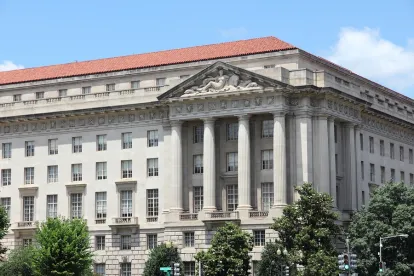On April 21, 2021, the U.S. Environmental Protection Agency (EPA) announced the issuance of Federal Insecticide, Fungicide, and Rodenticide Act (FIFRA) Section 18 emergency exemptions to the states of Georgia, Minnesota, and Utah permitting the use of BiaXamTM B110-V and BiaXamTM B110-P (BiaXam), adhesive film used as supplemental residual surface coating, in Delta Air Lines planes and facilities in those three states.
According to the EPA Authorizations for Georgia, Minnesota, and Utah (EPA Authorizations), the unregistered product is a transparent adhesive film that contains the unregistered active ingredient, Benzene, 1-(1,1-dimethylethyl)-4-ethenyl-, polymer with ethenylbenzene and 2-methyl-1,3-butadiene, sulfonated (CAS RN 1637665-77-0). BiaXam is approved for use on indoor hard, nonpliable, nonporous, nonfood-contact surfaces of aircraft, airports, and associated facilities owned or operated by Delta Air Lines, to provide residual control of the SARS-CoV-2, the virus that causes COVID-19. The adhesive film must be applied by trained applicators to indoor surfaces in airplanes, airports, and related facilities at the Delta Air Lines sites listed on the label. Prior to application of the BiaXam product, the surface initially must be disinfected using a disinfectant from EPA’s List N – Disinfectants for Use Against SARS-CoV.
The BiaXam film is to be replaced in airplanes at least every 200 days, and in airports and related facilities at least every 100 days. If the film detaches from the surface, degrades, is damaged, becomes irreparably soiled, or its edges or corners begin to peel, the film is to be removed, the surface cleaned and dried using a List N disinfectant, and a new layer of film applied to the surface according to the application instructions on the label. To maintain protective effect on surfaces that have been treated with BiaXam, only alcohol-based Purell wipes, Matrix Disinfectant/Cleaner #3 (quaternary ammonium based, EPA Reg. No. 1839-168-67026), and Lysol wipes (quaternary ammonium based, EPA Reg. No. 777-114) may be used on film-covered surfaces for routine cleaning and disinfection. The film surface is to be cleaned directly in place and not removed unless replacing. If cleaning products are provided to the public (e.g., airline passengers), only products compatible with BiaXamTM B110-V and BiaXamTM B110-P should be provided.
FIFRA Section 18 authorizes EPA to exempt federal or state agencies from any provision of FIFRA in the event that emergency conditions require such an exemption. EPA regulations (40 C.F.R. Part 166) specify when state or federal government agencies will be permitted to use unregistered pesticides in response to an emergency. EPA’s regulations provide that an emergency exists when:
- There is an “urgent, non-routine” situation requiring the use of a pesticide to control a new pest not previously prevalent in the United States, to control significant risks to health, the environment, beneficial organisms, or endangered species, or to prevent specified types of economic loss; and
- There is no registered pesticide or economically or environmentally feasible alternate method of control available.
40 C.F.R. § 166.3.
The exemptions granted can be very specific and time-limited; EPA has developed a database so companies can search (by chemical, site, pest, applicant, or date range) to determine if an emergency exemption has been issued and its expiration date.
EPA’s approval will allow the BiaXam product to be used at facilities owned or controlled by Delta Air Lines, Inc., at specific sites in Georgia, Minnesota, and Utah, on indoor hard, nonpliable, nonporous, and nonfood-contact surfaces in airplanes, airports, and other air-travel related facilities owned or controlled by Delta Air Lines, Inc. including, but not limited to:
- Airplanes: railings, doorknobs/handles, armrests, seatback touch screens, seatbelt buckles, window shades, overhead bins, and overhead control buttons.
- Airports and other air-travel related facilities: check-in kiosks and counters, gate counters, railings, doorknobs/handles, luggage bins, desks, keyboards, computer mice, touchscreens, printers, badge readers, plastic divider walls, hard nonporous seating, armrests, and elevator buttons.
The approved Section 18 emergency requests are effective for one year. Any unexpected adverse effects related to the use of this product must be reported immediately to EPA as required under the terms of the FIFRA Section 18 emergency exemption approval.



 />i
/>i

